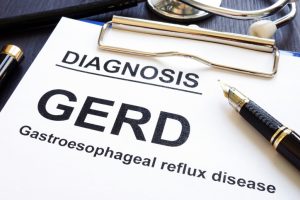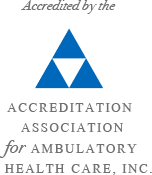Foods to Avoid with GERD
 Having gastroesophageal reflux disease (GERD) can make it difficult to enjoy having certain foods. Some foods and beverages can end up making symptoms worse.
Having gastroesophageal reflux disease (GERD) can make it difficult to enjoy having certain foods. Some foods and beverages can end up making symptoms worse.
What Foods Should Be Avoided with GERD?
When you have GERD, there are certain foods and drinks that might irritate your condition and cause symptoms to flare up. You should avoid eating foods that are high in fat, as well as foods and beverages that contain caffeine, such as coffee and chocolate. Other foods and drinks to avoid include onions, carbonated drinks, citrus fruits, and other products, tomato products, and peppermint.
What Foods Help Heal the Esophagus?
Some foods may provide relief from GERD symptoms. Your diet should include non-citrus fruits and vegetables, such as apples and carrots. Eating lean proteins, such as eggs and lean cuts of meat, can also help improve GERD symptoms for some people. Other foods to include in your diet are whole grains and other complex carbohydrates, as well as healthy fats, such as olive oil, peanut butter, flaxseed, and salmon.
Is Yogurt Good for GERD?
Yogurt that is low in fat is generally safe to eat for those who have GERD. You should avoid eating yogurt that contains whole fat rather than low amounts of fat. Whole fat yogurt can be harder for you to digest and might trigger GERD symptoms.
Is GERD Curable?
GERD is not considered curable, but there are ways to manage this condition through dietary and lifestyle changes. Maintaining proper posture while you eat and after eating instead of slouching can help lower your risk of GERD symptoms. Not eating right before bed can also help.
Can I Drink Milk if I Have GERD?
You can drink milk if you have GERD as long as it is low in fat. Avoid drinking whole milk, which can end up making GERD symptoms worse. Instead, choose skim milk, 1% or 2% milk, since these all contain lower amounts of fat and are easier to digest.
How Can I Heal My Esophagus?
Your doctor can recommend treatments that might help ease symptoms of GERD and prevent additional damage to your esophagus. There are surgical procedures that might help if you have severe GERD that does not respond to other forms of treatment, such as medication.
What Can I Eat During a GERD Flareup?
During a GERD flareup, you should avoid foods that make your symptoms worse. Eat foods that can help ease symptoms, such as fruits, vegetables, whole grains, lean meats, and healthy fats.
How Do You Make Acid Reflux Go Away Fast?
Some over-the-counter medications, such as antacids, can provide short-term relief from GERD symptoms. If you keep having these symptoms, you should see your doctor for treatment.
Is Coffee Bad for GERD?
Coffee contains caffeine, which can irritate your condition if you have GERD. If you use whole fat creamer in your coffee, this can cause your symptoms to become worse. Drink decaffeinated coffee and use low-fat creamer or milk to avoid GERD flareups.
If you have symptoms of GERD and are looking for treatment options, make an appointment today with Gramercy Park Digestive Disease Center. Our experienced gastroenterologists can provide treatment options and manage your symptoms in the most effective way possible.


